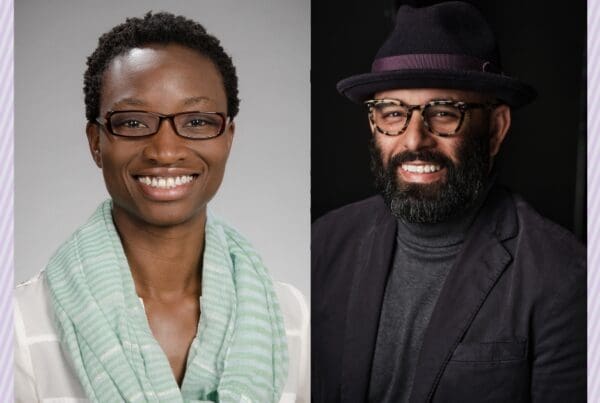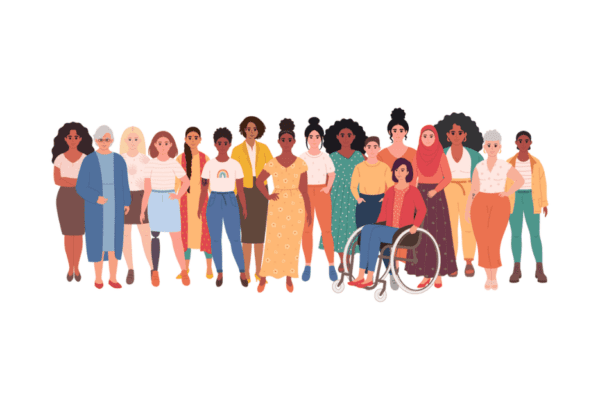Highlights | Studying microaggressions in medical school
- Medical student Brian Cedeño was named to the Husky 100.
- He has also worked on research looking at microaggressions in medical school.
- His goal is to make school more equitable for students of color.
Third-year UW School of Medicine student Brian Cedeño was named to the prestigious University of Washington 2022 Husky 100, an annual list of UW undergraduate and graduate students in all areas of study who are making the most of their time at the UW.
Cedeño was honored for years of past and present mentoring of other students. He was also honored for helping with research into an ongoing challenge: racism, in this case, racism in medical education.
An eye-opening experience
Cedeño, whose family moved from Mexico when he was in fifth grade, didn’t always plan to be a doctor. When he was a Ballard High School student, he was planning to follow in the footsteps of his father who worked in home rehab and construction in Seattle.
In Ballard, Cedeño’s high school health class was visited by representatives from UW Medicine and from Sea Mar Community Health Clinics. They shared with Cedeño’s class about the social determinates of health. Cedeño learned for the first time that where people come from, where they live and how much money they make can affect how long they live.
“These were things I had noticed growing up, but I didn’t have a way to connect them all,” he says.
Cedeño went on to graduate from UW with a degree in public health and became a health educator at Sea Mar. He met with countless patients, both in individual appointments as well as group settings. He appeared on Spanish-language radio and TV to deliver and encourage healthy practices.
Giving back as a medical student
He never forgot the medical students and doctors who visited his class and who inspired his passion for medicine. After four years, Cedeño was ready for medical school.
“To make change happen, you have to get the level of education that can make further change happen,” he says.
Today as a medical student, like the physicians who visited his class, Cedeño wants to make a difference in his community. One way he intends to do that is through mentoring. As a UW undergraduate, he mentored students in high school; now as a medical student, he mentors UW undergraduates who are pre-med.
Researching microaggressions and healthcare discrimination
On his path to becoming a physician, Cedeño is studying why medical students from underrepresented communities across the United States are subject to microaggressions and outright discrimination during classroom and clinical experiences. He’s working with UW Medicine researchers to learn what can be done to support these students, prevent discrimination and promote diversity, equity and inclusion in both medical education and the practice of medicine.
“Students of color have a fundamentally different experience in clinical rotations. And there hasn’t been a lot of research into what these experiences are and how we can make clinical rotations better,” says Toby Keys, director of the Rural Underserved Opportunities Program (RUOP), a faculty member in the Department of Family Medicine and a researcher working with Cedeño. “We want to offer some solutions so every student can thrive.”
“Medicine is not immune to institutional racism. And I thought, yes, I could wait until I’m a doctor, but I wanted to do something right now to help make things be a little better,” Cedeño says.
Cedeño’s role was in the research project was to host listening sessions with medical students who are Black, Indigenous and People of Color (BIPOC) who shared their stories of experiences in clinical learning — and sometimes, mistreatment such as microaggressions and racism. Helping them feel safe and validated as they shared painful experiences was and is an important step in understanding both the challenges and potential solutions.
“People were sharing painful memories,” Keys remembers. “And every step, Brian was careful to thank them and validate their experience. That brought richer discussions, and as a person, he was comforting and reassuring. Several times students thanked Brian for giving them a safe place to talk.”
“I think we did a good job hearing people’s stories and validating unfortunate experiences that students of color face at even an amazing school like the University of Washington,” Cedeño says. “We have to do better for the students who will come after us.”
“We received a lot of great suggestions about how to fix these things, how to think about training preceptors and how we organize the rotations,” Keys says. “Ultimately, this is about creating equity and a better learning environment for our students. We’re hoping to publish in journals so some of these lessons can go around the world.”
So far, the findings have been shared with the UW School of Medicine deans. It will surprise no one to learn that Cedeño led the presentation. He anticipates publication of the results.
“There is power in data. There is power in presenting the information and solutions in data and numbers and graphs, the language that academia speaks,” Cedeño says. “I didn’t want to graduate without doing something to drive change, to make things better for the students who are coming in after me. They shouldn’t have to focus on racism, sexism, ageism, all the isms. We should just be able to focus on learning how to become doctors.”


